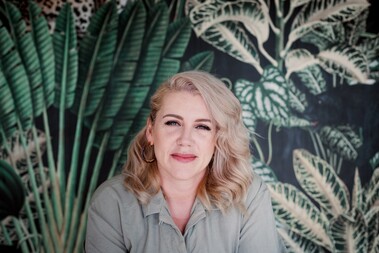 | Dr Louise A ASHTON Assistant Professor of School of Biological Sciences
Biodiversity and Enviornmental Change Lab
|
1. What do you think are your most significant research accomplishments, and what has been the impact of your research?
Most of my research has been on insects in tropical rainforests. These ecosystems are super diverse, but there are large knowledge gaps about how many insect species exist, what are their ecological roles and how are species responding to environmental change. I have worked on a range of insects groups including termites, moths and ants to understand the importance of insects in ecosystem function and how humans are altering biodiversity. Recently, I have been working on termites in Borneo. Termites are often demonised (due to property damage) and are an understudied group. However, termites are super abundant in the tropics and important for ecosystem processes such as decomposition. My recent collaborative termite study showed for the first time that termites can buffer the effects of drought in a tropical forest. Given that climate change is predicted to increase the frequency and severity of droughts in some regions, termites will become even more important in maintaining ecosystems in the future.
2. Please give a brief description of 1 - 2 ongoing research projects that best reflect your visions in the scientific field.
We exist in human-modified landscapes so there are lots of interesting questions about how human impacts shape biodiversity. At the moment, I am working on the understanding climate change impacts on insects across a range of ecosystems. We still have a poor understanding of how many species there are in tropical rainforests, let alone how this biodiversity is responding to multiple human impacts such as climate change, habitat loss and light pollution. My ongoing research projects seek to describe tropical insects and their functions and the threats to them. As we live in landscapes that are disturbed by humans, it is important to understand insect biodiversity across different ecosystem types. I am currently investigating insects across a range of disturbance levels from untouched primary forest, to logged forest, oil palm and rice ecosystems.
3. What is the most important question you want to address?
Nature is the life support system that all humans rely on for our existence, but we are pushing nature beyond the boundaries of ecological function. I want to increase our understanding of the importance of insect biodiversity and ecosystem function in tropical regions and help inform policy and conservation to protect nature into the future.
4. Where do you see yourself in five years/ten years? What do you want to accomplish the most?
I see myself continuing to work on aspects of insect biodiversity and environmental change. I hope to continue to train young scientists to have a passion for the natural world and a shared goal of understanding and conserving biodiversity and tropical ecosystems.
5. What are the challenges you are facing?
During COVID, many researchers have been unable to get to their field sites and this has been a big issue for me and my team. My group has adjusted a lot of their research focus to new projects that don’t require travel such as meta-analyses and lab-based experiments.
6. Who has influenced you the most?
My PhD supervisor Professor Roger KITCHING has been very influential. I went to Griffith University in Brisbane, Australia, where each year Professor KITCHING took a group of undergraduate students to the Bornean rainforest to learn about the importance of natural history and ecology. This was highly influential in mine and many other people’s lives, and is something I am hoping to continue with our own Bornean field course here at HKU.

